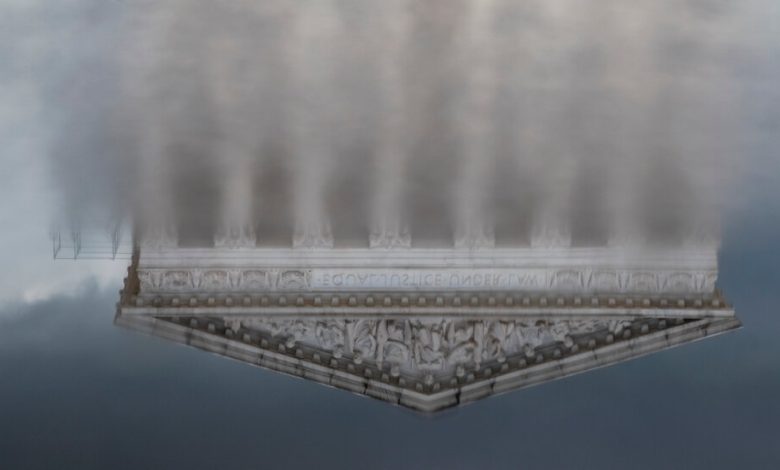How to Deal With a Supreme Court That Can No Longer Be Shamed

An earlier generation of Supreme Court justices seemed to possess the capacity for shame.
In 1969, Justice Abe Fortas resigned his seat for accepting a $20,000 consulting fee (which he returned) from a foundation led by a man who was convicted of securities fraud.
Whatever Justice Fortas believed about his own honor and morality, he understood that the Supreme Court is an inherently fragile institution, and that its nine justices cannot afford the slightest whiff of bias or corruption. As the Times editorial board wrote then, “a judge not only has to be innocent of any wrongdoing but he also has to be above reproach.” Placing the court’s and the country’s interests above his own, Justice Fortas stepped down.
That sort of humility is nowhere in evidence on today’s court, which is finding new ways to embarrass itself, thanks largely to the brazen behavior of two of its most senior members, Justices Samuel Alito and Clarence Thomas, who are making a mockery of their obligation to at least appear neutral and independent. They fail to report large gifts, luxury vacations and payments to their family members by wealthy donors, at least one of whom had business before the court, and they express nakedly partisan opinions or fail to adequately distance themselves when their spouses express such views.
They are saying, in effect, that they don’t care if any of this bothers you. To go by recent polls showing that this court’s public approval has approached record lows, it bothers many millions of Americans. And yet no one in Washington seems willing to act.
It can’t go on. The court’s refusal to police itself, willingly allowing a few justices to trample on its reputation, demands that Congress step up and take far stronger action to enforce judicial ethics, and to require justices to recuse themselves when they have or appear to have clear conflicts of interest.
The latest in a long list of examples became public last week, when The Times reported that an upside-down American flag flew over the front lawn of the Alito family home in the immediate aftermath of the Jan. 6 insurrection incited by then-President Donald Trump. The flag, a clear pro-Trump statement widely flown by those who believed the 2020 election was stolen, apparently stayed up for days, even as the court was weighing whether to hear a case challenging the outcome of the election. (The court voted not to hear the case. Justice Alito, like Mr. Trump, was on the losing side.)
